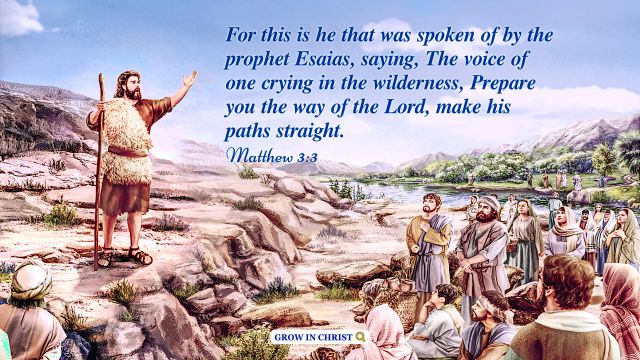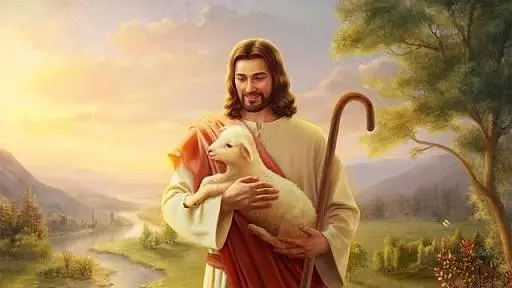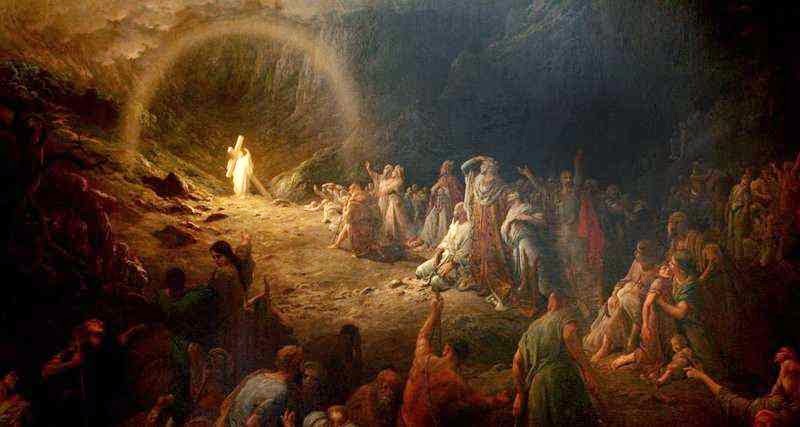To accompany your Come Follow Me study for September 19-25
In addition to reading the suggested chapters, you may enjoy
- Watching the following video:
- Reading the related material from the Institute student manual at https://www.churchofjesuschrist.org/study/manual/old-testament-student-manual-kings-malachi/chapter-16?lang=eng and https://www.churchofjesuschrist.org/study/manual/old-testament-student-manual-kings-malachi/chapter-17?lang=eng
- Reading these same chapters in a modern language translation, such as the New International Version or the New Living Bible. You can find these and many other versions available for free online at https://www.biblegateway.com/plus/?test=b.
If you would enjoy seeing a Kahoot game related to this material which you could use for your own amusement or with your family or class, click here:
https://create.kahoot.it/share/isaiah-40-49/a66ddc28-e310-4597-bbc5-8a15aece15a6. (To use it with a group, after clicking on this link, you will need to log into Kahoot, creating a free account if you have not done so previously, then click on the blue “Start” button.)
Points to Ponder in Isaiah 40-49
1. What passages from these chapters help increase your faith in God’s existence, in His goodness, and/or in the truthfulness of the Church of Jesus Christ of Latter-day Saints?
2. What passages from these chapters help teach, motivate, or inspire you to live better?
3. What prophetic passages do you find which you believe relate to the mission of Jesus Christ?
4. What are your favorite passages from these chapters relating to the latter days?
Other miscellaneous points to consider in these chapters.
5. Do you think 40:3-5 refers to John the Baptist’s preparation for Jesus’ first coming or to His future Second Coming? Why?

6. In what sense is it true that “all flesh is grass”? (40:6)
7. In John 10:11, when Jesus said He was the good shepherd, the Jews got angry. How does Isaiah 40:10-11 help us understand why?

8. How many different variations of names or titles for Deity can you find in these chapters? You should be able to find more than 20.
9. What is it that the Lord calls “them all by names” in 40:26? What implications does this have for you personally?
10. Why does Isaiah 40:31 look so familiar? What does it mean?
11. Why does 41:10 look so familiar?
12. Why does the Lord call Israel a “worm” in 41:14, and then promise to help them?

13. What do Latter-day Saints see in Isaiah 42:7 that others might miss?

14. Isaiah 43:10-11, 44:8, and other passages in Isaiah seem to contradict the Latter-day Saint concept that even our Heavenly Father had a father and that we ourselves may become gods, as presumably millions before us have done. How can we reconcile this?
15. What does 43:24 mean when it says, “Thou hast made me to serve with thy sins”?
16. What does it mean in 45:4, where the Lord says, “I have surnamed thee”?
17. Why does 45:7 say that the Lord creates evil? Didn’t Mormon teach that “all things which are good cometh of God; and that which is evil cometh of the devil”? (Moroni 7:12.)
18. Does 45:23 mean that everyone will eventually be a Latter-day Saint? If not, what does it mean?
19. What interesting commentary on Isaiah 48:1 did Joseph Smith insert into the 1 Nephi 20 version of the passage?
20. Can you find the message of 48:22 expressed in similar words in the Book of Mormon?
21. Why do you suppose Nephi inserted Isaiah 48 and 49 into his records, laboriously copying it onto the gold plates?
Possible Answers to Points to Ponder in Isaiah 40-49
1. What passages from these chapters help increase your faith in God’s existence, in His goodness, and/or in the truthfulness of the Church of Jesus Christ of Latter-day Saints?
My list includes:
- 40:26: God knows every one of the 200 billion trillion stars estimated to be in the universe individually, by name. (And no doubt there are many more than astronomers have any idea of.) He is obviously wise enough and powerful enough to warrant my total faith.
- 41:10: God asks us to fear not, as He will be with us and help us.
- 42:7: The Latter-day Saint concept of work for the dead is supported here.
- 44:28 and 45:1: Through the spirit of prophecy, Isaiah is able to foretell Cyrus’ mission and call him by name decades before he would be born.
- 48:10: God refines us in the “furnace of affliction.” It is a blessing.
- 49:13: God promises to comfort His people, have mercy on them, and make them joyful and full of song.
- 49:16: God has graven us upon the palms of His hands, figuratively speaking.
2. What passages from these chapters help teach, motivate, or inspire you to live better?
My list includes:
- 40:10-11: God will come with a reward for the righteous, will fed his flock like a shepherd, and will gently lead us like lambs.
- 40:31: Both physical and spiritual strength and energy are promised to the faithful.
- 42:6: Those of Israel (including by adoption) are to be a “light” to the Gentiles.
- 43:10: We are to be God’s witnesses.
- 43:25: We should be as willing to forgive others as God is to forgive us.
- 46:9: We are invited to “remember the former things of old,” which would include God’s miracles and blessings from the past, as well as His prescriptions for our happiness (commandments).
- 48:18, 22: Peace comes only through righteousness.
- 48:20: We are to come out from spiritual Babylon.
3. What prophetic passages do you find which you believe relate to the mission of Jesus Christ?
They would include:
- 40:3-5: The mission of John the Baptist foretold.
- 42:2-3: Christ to come with meekness and mildness (the first time).
- 42:7: Jesus’ preaching to the spirits in prison foretold.
4. What are your favorite passages from these chapters relating to the latter days?
My list would include:
- 40:1-5: The Second Coming, with the further fulfillment of Isaiah’s prophecy of preparations to be made prior to the glory of the Lord being revealed, and all flesh seeing it together.
- 40:9: Some early Latter-day Saint leaders saw the establishment of the Church in the West as a fulfillment of this prophecy of Zion getting up “into the high mountain.”
- 42:9-16: The latter-day restoration of the gospel poetically predicted.
- 43:5-6: Israel to be gathered from every direction.
- 43:19: Rivers in the desert.
- 45:17: Israel to be saved with an everlasting salvation.
- 45:23: Eventually, every knee shall bow and tongue confess God’s greatness.
- 49:6: Israel to be a light to the Gentiles.
- 49:22-23: Latter-day Gentiles to aid in the gathering of Israel.
Other miscellaneous points to consider in these chapters.
5. Do you think 40:3-5 refers to John the Baptist’s preparation for Jesus’ first coming or to His future Second Coming? Why?
Matthew (3:3), Mark (1:3), Luke (3:4), and John the Baptist himself (John 1:23) all quoted it as referring to John’s mission prior to Jesus’ ministry, but D&C 65:3 and 88:66 apply it also to the latter-day preparation for the Savior’s future return. Surely Isaiah’s prophecy will not be completely fulfilled until “every valley shall be exalted” and “the glory of the Lord shall be revealed, and all flesh shall see it together,” which clearly relates to the Second Coming. This is one among many of Isaiah’s prophecies which seems to have a dual application.
6. In what sense is it true that “all flesh is grass”? (40:6)
It isn’t a reference to little green men, or a suggestion that humans would be good cattle fodder. It is instead, a recognition that just as grass is green in the springtime but turns brown quickly (at least where Isaiah lived), so is man’s life short and his mortal experience very temporary.

7. In John 10:11, when Jesus said He was the good shepherd, the Jews got angry. How does Isaiah 40:10-11 help us understand why?
The Isaiah passage clearly refers to “the Lord God,” and was well known to the Jews. When Jesus said He was the good shepherd, He was affirming His relationship to Deity, which the Jews considered blasphemous.
8. How many different variations of names or titles for Deity can you find in these chapters? You should be able to find more than 20.
My list includes:
- God (41:10, etc.)
- Everlasting God (40:28, etc.)
- The Lord (40:5, 28)
- The Lord God (40:10; 49:22, etc.)
- The Spirit of the Lord (40:13)
- The Holy One (40:25, 43:15; 49:7)
- The Holy One of Israel (41:14, etc.)
- The Creator of the ends of the earth (40:28)
- The creator of Israel (43:15)
- Redeemer (41:14, 43:14; 49:26)
- The Redeemer of Israel (49:7)
- The God of Israel (41:17, 45:3)
- The King of Jacob (41:21)
- My servant (42:1)
- Mine elect (42:1)
- God the Lord (42:5)
- Savior (43:3, 11; 45:15; 49:26)
- Your King (43:15)
- The King of Israel (44:6)
- The Lord of hosts (44:6, 45:15)
- The first … and the last (44:6; 48:12)
- Maker (45:9, 11)
- The mighty one of Jacob (49:26)
9. What is it that the Lord calls “them all by names” in 40:26? What implications does this have for you personally?

This refers to the stars in the heavens, countless in number to mortals, yet known individually by God and identified by name. If He knows even the inanimate stars by name, surely He knows us, His children, individually, and can minister to each of us according to our individual and specific needs.
10. Why does Isaiah 40:31 look so familiar? What does it mean?
The 2nd to the last verse of D&C 89, which contains the Word of Wisdom, contains the promise that those who keep that law and other commandments “shall run and not be weary, and shall walk and not faint.” Isaiah makes the same promise to those “that wait upon the Lord.” The promise presumably has both a temporal and a spiritual dimension. Those who keep the Lord’s commandments, including the Word of Wisdom, in general will be healthier and more vigorous than those who do not. But they will also be more spiritually strong and in eternity will “mount up with wings as eagles,” symbolically speaking.
11. Why does 41:10 look so familiar?
41:10 sounds to me a lot like the opening line of verse 3 of “How Firm a Foundation.”
12. Why does the Lord call Israel a “worm” in 41:14, and then promise to help them?
The footnote suggests that the Lord is comparing Israel’s meekness and humility to that of a worm, not that they are no more valuable in His sight.
13. What do Latter-day Saints see in Isaiah 42:7 that others might miss?
This seems to foreshadow the time when the Savior, between the time of His crucifixion and resurrection, would preach “unto the spirits in prison” (1 Peter 3:19), giving them the opportunity to accept the gospel they had rejected or not had opportunity to hear while in the flesh.
14. Isaiah 43:10-11, 44:8, and other passages in Isaiah seem to contradict the Latter-day Saint concept that even our Heavenly Father had a father and that we ourselves may become gods, as presumably millions before us have done. How can we reconcile this?
The Lord is clearly emphasizing, through Isaiah, that none of the pagan gods worshipped by Israel’s neighbors were true gods. So far as this earth is concerned, there is but one God whom we worship, who, with His Son, Jesus Christ, and the Holy Ghost, constitute one Godhead. Unlike the reputed pagan Gods, which were often supposedly at odds with each other, the Father, Son, and Holy Ghost are so completely united in purpose that the scriptures can properly speak of them as “one God.” There is only one divine address to which we address our petitions, and only one source of divine help. But one of the clearest teachings of scripture is that we are literally children of God, created in His image, with the opportunity to become “like him” (1 John 3:2), just as the offspring of every other creature has the potential to become like their parents.
15. What does 43:24 mean when it says, “Thou hast made me to serve with thy sins”?
One application is that the Lord is telling Israel, and each of us individually, that our sins have each added to the burden He had to carry for us in Gethsemane. We may wish to ask ourselves if we really would ever choose to be responsible for causing additional pain to one who was already carrying going through infinite suffering to atone for the sins of all mankind, not only on this but on all His creations.

16. What does it mean in 45:4, where the Lord says, “I have surnamed thee”?
When we are baptized, we agree to take upon us the name of Jesus Christ. Full-time missionaries carry that name in the most visible sense, on a name tag. But each of us has an invisible name tag, proclaiming that we are part of His family. We thereafter represent Him, and our actions reflect either credit or shame upon Him and His entire family of saints.
17. Why does 45:7 say that the Lord creates evil? Didn’t Mormon teach that “all things which are good cometh of God; and that which is evil cometh of the devil”? (Moroni 7:12.)
See the excellent commentary on this point in the Institute student manual at https://www.churchofjesuschrist.org/study/manual/old-testament-student-manual-kings-malachi/chapter-16?lang=eng
18. Does 45:23 mean that everyone will eventually be a Latter-day Saint? If not, what does it mean?
It does not mean that. As D&C 76:110 makes clear, even those who inherit the telestial (third) glory will “bow the knee, and every tongue shall confess,” in acknowledging God’s existence and greatness. But none will be compelled to follow Him, and many will choose not to do so and will suffer the consequences thereof.
19. What interesting commentary on Isaiah 48:1 did Joseph Smith insert into the 1 Nephi 20 version of the passage?
He inserted “or out of the waters of baptism” after the mention of the “waters of Judah.” This was not part of the original Book of Mormon text but was inserted by Joseph Smith to convey to the reader his understanding of what Isaiah meant.
20. Can you find the message of 48:22 expressed in similar words in the Book of Mormon?
The best answer may be Alma 41:10: “Wickedness never was happiness.”
21. Why do you suppose Nephi inserted Isaiah 48 and 49 into his records, laboriously copying it onto the gold plates?
These chapters referred to the latter-day gathering and restoration of Israel, of which Nephi’s descendants would be a part, and had great counsel about how to find the offered peace and happiness. Nephi may have foreseen that many of his latter-day readers would be more likely to read these chapters from the Book of Mormon than to wade through the book of Isaiah, which can seem tedious to many.
